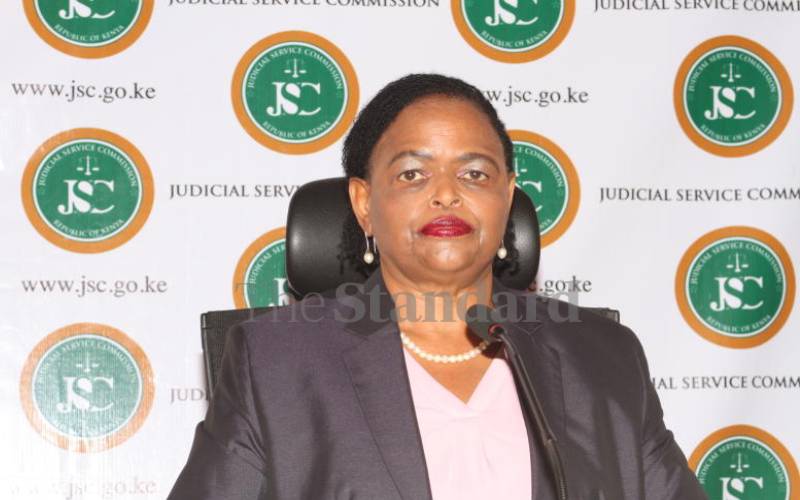×
The Standard e-Paper
Fearless, Trusted News

Martha Koome when she appeared before the Judicial Service Commission to interview for the position of Chief Justice at the Supreme Court buildings, yesterday. [Collins Kweyu, Standard]
Court of Appeal Judge Martha Koome has explained why a three-judge bench issued an order suspending a High Court ruling on the eve of Kenya’s repeat election.